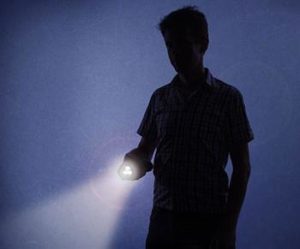By: Dom Tolli, VP Preparedness Health and Safety Services
We all know power outages are miserable, especially if they drag on for hours or days. While you can take steps to keep yourself comfortable-like having fully charged phones and backup power for your electronic devices-there are some steps you must do that will keep you safe.
1. Make sure you have a light source other than candles. Most people don’t think about this but candles are the first thing many of us reach for in a blackout. Resist the urge. Left unattended or misused, they become a fire hazard. Flashlights, LED powered candles, or battery operated lanterns are safer, give off more light and won’t catch the drapes on fire.
2 Keep refrigerator and freezer doors closed as much as possible. Nobody wants to replace the ketchup, mustard and everything else in the fridge. You don’t want to make the blackout worse by getting sick too. You can minimize food loss but it’s important to know how long food will keep. First use perishable food from the refrigerator. An unopened refrigerator will keep foods cold for about 4 hours. Then use food from the freezer. A full freezer will keep the temperature for about 48 hours (24 hours if it is half full) if the door remains closed.
3. Check on your neighbors. Those who are elderly or infirm may not have an easy time getting access to heat. A warm meal, extra blankets, some time near your fireplace or a ride to a local warming shelter (if available in your area) would certainly be welcome.
4. Know how to operate a generator, if you have one. Used improperly, generators can become a source of deadly carbon monoxide flumes. Never operate a generator inside the home, including in the basement or garage. Don’t hook a generator up to your home’s wiring. The safest thing to do is to connect the equipment you want to power directly to the outlets on the generator.
You can find more specifics about staying safe during power outages by going to http://www.redcross.org/prepare/disaster/power-outage

